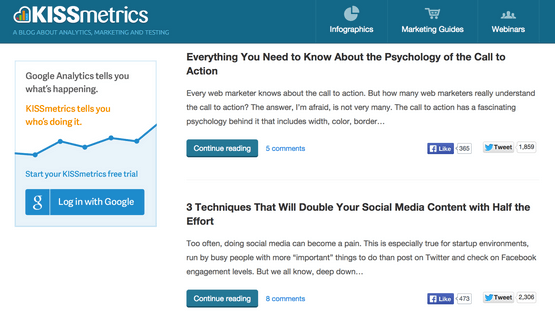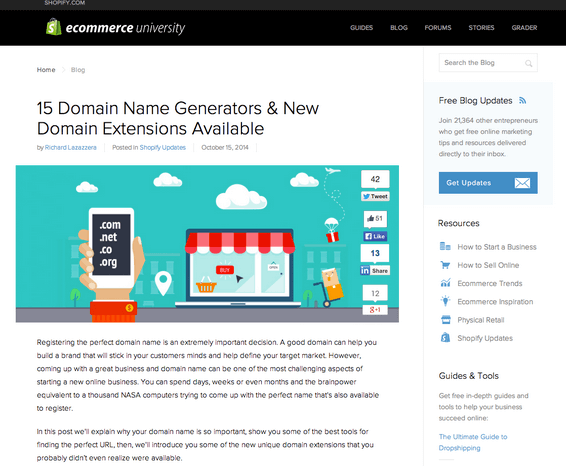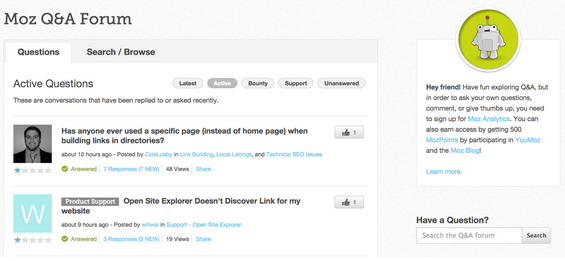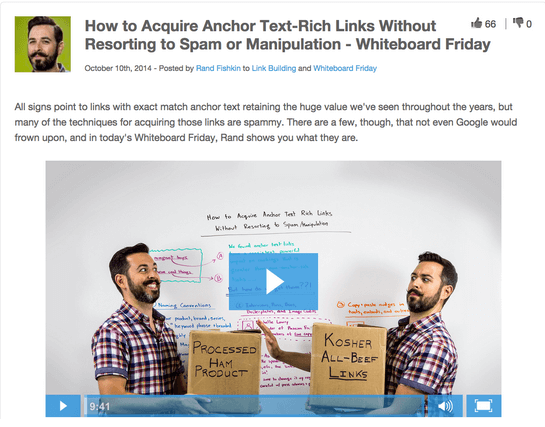It’s been nearly eight years since elMejorTrato launched, and from the first moment we focused on content marketing as a main strategy for our growth.
With time and constant experiments, there are several lessons to share. But we also made lots of mistakes, which provided lessons in what not to do with start-up content marketing.
Following are the five most important lessons for you to use in your own content marketing.
The Content Must Be Focused on the Customer
With a new start-up, it’s totally understandable that all the energy is focused on the product, its characteristics, its advantages against the competition, and more that eventually helps an organization bring in the very valuable cash.
However, the content marketing strategy should not be focused exclusively on the project being developed.
No matter how simple it looks, it’s the biggest mistake entrepreneurs make over and over again.
When you think about start-up content marketing, you should consider content that talks about how spectacular your product is, and content that responds to all of the uncertainties, inquiries, curiosities, and doubts potential customers may have.
For example, a company such as Kissmetrics—a tool that allows you to analyze website traffic—doesn’t focus only on the excellent system. It provides valuable tips, such as “psychology to close an online purchase” or “techniques to improve your sales in the social networks.”
Start-up content marketing should help potential customers (those people who aren’t users yet, but could become so in the future) better understand the industry they are exploring or working in.
While the subject matter doesn’t directly relate to their product, they are definitely directly related to the customer profile they want to reach.
Content Must Be Created By an Expert
All content must be produced, monitored, and published exclusively by a professional because each new article or other content that is published is a direct reflection of the quality of the start-up.
If the content is rife with typos and grammatical errors, people automatically have the perception the start-up doesn’t know what it’s doing. On the flip side, if the content is valuable and informative—and well produced—visitors tend to trust the people inside the organization and are more willing to buy.
A great example of this is on the Shopify “University of Ecommerce” blog. Experts on ecommerce share their experiences and what they have learned.
It might be accessories and attire or it could be how to choose a name for your website. The point is, they are the experts, which is why the content is so well-received.
Unify Similar Themes
Unify all similar themes in one place.
When a theme has been addressed in the past, instead of creating a new note, article or news section, go back and update the original blog post.
This is due to changes in search engine algorithms, but also to make it easier for customers. If they have all updated information in chronological order in one place, they don’t have to jump all over your site to get the information they need.
For example, instead of having an article about “requisites to develop an online store” and another one about “marketing tools for an online store” and another one about “optimization techniques for an online store,” it’s much better to have just one much longer article that includes all the previous topics together.
Users Can Help with Start-Up Content Marketing
The famous “frequently asked questions” section that most websites have is still valuable, with a twist.
Develop a totally new section called “questions and answers” and let customers publicly ask any question they want. One of your experts then responds to the question, with all of the necessary technical information to solve their problem.
This has two advantages. First, other users in the future will be able to organically find this content through, for example, search engines.
Second, your current customers will also be able to find an answer to their query without having to call personally to get assistance from the right person.
An example of this is MOZ. This company develops excellent software for inbound marketers. They created an expert community to answer all the most important questions in their industry.
This allows users and prospective users to find answers to their questions with the click of a mouse.
Start-Up Content Marketing is Not Only Text
Lastly, a concept that has grown in the last couple of years is to include audio (such as podcasts) and videos instead of just text.
To do this successfully, transcribe the videos or podcasts into written text so the search engines can index the content, or make a summary of the most important items in text.
Unfortunately, potential customers these days have less and less time available to read long articles or pieces of news.
Instead, prospects prefer to gain this information from a video in less than five minutes or in an audio podcast on their way to work.
A great example of this is Whiteboard Friday from Rand Fishkin at MOZ.
Every Friday, they share a video on their blog, instead of an article, explaining some new theme of interest that came up during the week.
In the long run, the most important goal in implementing start-up content marketing is to become a well-known reference in your industry—to be the best place a potential customer would head to source more information or knowledge.




